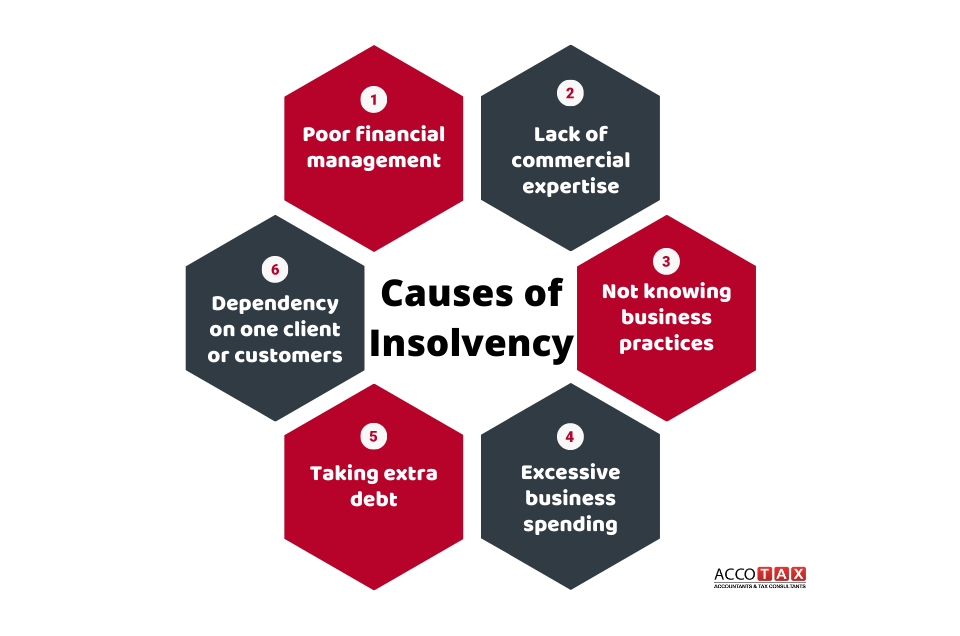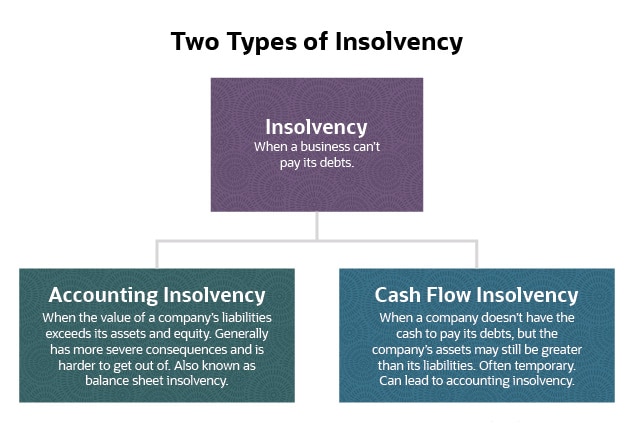Insolvency Practitioner Fundamentals Explained
Wiki Article
Some Known Details About Insolvency Practitioner
Table of ContentsThe Definitive Guide to Insolvency Practitioner3 Easy Facts About Insolvency Practitioner ShownOur Insolvency Practitioner DiariesThe Of Insolvency PractitionerThe Ultimate Guide To Insolvency PractitionerExamine This Report about Insolvency PractitionerInsolvency Practitioner Fundamentals ExplainedInsolvency Practitioner Fundamentals ExplainedLittle Known Facts About Insolvency Practitioner.
This can take place for a number of reasons, consisting of poor economic management, unforeseen prices, or a change in the marketplace. If a company is financially troubled, it may be compelled to shut down or liquidate properties to pay lenders. This can have a major influence on business, staff members, and shareholders.Why does a business get in right into insolvency? There are a number of reasons why a firm might get in into insolvency.
Facts About Insolvency Practitioner Revealed
Other reasons for insolvency consist of fraud, mismanagement, and unanticipated expenses. Insolvency can additionally lead to task losses and the closure of services.This can have major effects for the company, its stakeholders, lenders and the economic climate. The firm might be required to market possessions, gave up team or even fold. This can have a knock-on effect on the regional community and the economic situation all at once. Financial institutions may be neglected of pocket and the company's shareholders might see their financial investment go away.
Bankruptcy is the procedure where a company is ended up and its properties are marketed off to pay lenders. This is usually the last hotel, as it can have an extremely negative effect on the company's reputation. Receivership takes place when a business is incapable to pay its debts and is placed under the control of an exterior manager.
The Basic Principles Of Insolvency Practitioner
Volunteer administration resembles receivership, yet it is initiated by the supervisors of the company as opposed to the creditors. This choice is usually used when a business is facing monetary troubles but there is still really hope that it can be transformed about. Business bankruptcy is a facility and severe concern that can have far-ranging implications for companies of all sizes.With the best aid, you can guarantee that your company has the ideal opportunity of weathering this difficult time. (Insolvency Practitioner)
The Best Strategy To Use For Insolvency Practitioner
Whatever your reason for shutting your business, there are several factors to consider you have to address prior to 'shutting the doors'. There's additionally a lot you can do to make the procedure much less difficult and improve outcomes. Closing down your business is not almost satisfying the functional and lawful demands.Deal with your employees As an employer, you require to monitor and provide assistance to your staff members during this difficult time. Know any possible health and wellness and well-being problems they may experience since of: job insecuritytransitioning via the sale of the businesschange in proprietors. You can: There are generally 2 situations in which you would willingly close your company.
You also: do not intend to, or can not, offer the businesshave no-one to take it over. my review here You're likely to have time to prepare your closure. This will assist you to: close efficientlymeet your lawful obligationssave moneytake away maximum earnings. You website link may be closing your service because: it's not covering its expenses and running costsyou can't maintain the operating expense while attempting to offer it.
The 9-Minute Rule for Insolvency Practitioner
There are many things you need to attend to prior to shutting your business. Your accounting professional, solicitor or business adviser will certainly be able to assist you with this.
It offers a: timeline for completing activitieslist of legal needs and other factors to consider. Depending upon your lawful structure, all or several of the complying with factors may put on you when you voluntarily shut your company. Speak with your accounting professional, solicitor and company adviser regarding lawful demands for shutting your company. It is necessary to pay for these solutions to guarantee you do it appropriately and with the minimum number of adverse effects as feasible.
Rumored Buzz on Insolvency Practitioner
You must settle all tax obligation problems for your organization, also if it's no longer trading. This includes your obligations regarding payment of: edge advantages taxpay-as-you-go (PAYG)superannuationemployment termination.Insolvency occurs when your service can not pay its debts, which can result in your service closing down. Various insolvency treatments apply to individuals and firms.
If you try to manage it on your own, you'll need to connect with every lender independently to try to bargain routine settlement amounts. Insolvency or personal bankruptcy advisors can: assistance you through the processhelp More about the author you comprehend your optionsnegotiate with your financial institutions in your place. They hold details licences and credentials in this specialised area.
Some Known Factual Statements About Insolvency Practitioner
It's important to identify economic trouble early so you can look at ways to stay clear of bankruptcy. You must likewise be mindful of financial institutions placing queries or defaults versus your credit scores file.Personal bankruptcy for single traders and individuals within collaborations Personal insolvency treatments use to: Before starting an individual insolvency process, it's crucial to understand the: effect of the consequenceshow long the influence will certainly be., also understood as a Part IX contract, permits you, or the selected manager, to work out with your lenders to pay a percentage of the mixed debts over a period of time to your manager, instead than attempting to continue making settlements to each creditor.
10 Simple Techniques For Insolvency Practitioner
Company insolvency and liquidation An 'financially troubled business' is not able to pay its financial debts or cover the price of its overheads. In some situations, insolvent companies may enter into liquidation. Liquidation is when an independent authorized liquidator is assigned to take control over the business and wind up the firm service in an orderly way.
The Only Guide for Insolvency Practitioner
Sonia Piccinini committed considerable time and initiative in the preparation of this publication. The views revealed in the report are those of the IMF's Legal Department and must not be associated to the Exec Directors or the Monitoring of the IMF. FRANOIS GIANVITI Current experience has actually demonstrated the level to which the lack of organized and effective insolvency treatments can intensify economic and monetary dilemmas.Report this wiki page